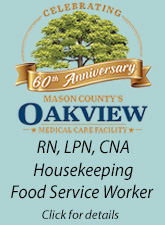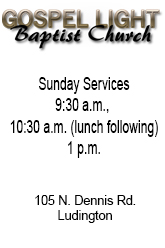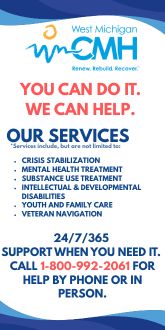 HART — Emergency Medical Services (EMS) face numerous challenges in responding to the needs of rural communities. The Michigan Rural EMS Network was formed to help rural EMS professionals address these challenges in Michigan.
HART — Emergency Medical Services (EMS) face numerous challenges in responding to the needs of rural communities. The Michigan Rural EMS Network was formed to help rural EMS professionals address these challenges in Michigan.
In September 2014, Michigan Rural EMS Network received two federal grants from the Office of Rural Health Policy for its cardiac arrest initiative, the Michigan Resuscitation Consortium (MiResCu). From there, the MiResCu Community Award program was established.
In its first cycle, the MiResCu Community Award program will provide support for 10 organizations representing residents in 21 rural counties across Michigan. These communities will receive assistance to implement strategies proven to increase cardiac arrest survival.
The MiResCu Community model is based on the system that was developed by the Resuscitation Academy, and first initiated in  King County in Seattle, Wash. Today, someone who suffers cardiac arrest in King County is four to five times more likely to survive. In 2013, King County achieved a 62 percent survival rate for cardiac arrest in witnessed ventricular fibrillation, among the highest reported survival rates in the world. Most cities experience rates in the single digits. Through MiResCu Community awards, the Michigan Rural EMS Network will provide the support needed to help rural communities increase their survival rates from cardiac arrest.
King County in Seattle, Wash. Today, someone who suffers cardiac arrest in King County is four to five times more likely to survive. In 2013, King County achieved a 62 percent survival rate for cardiac arrest in witnessed ventricular fibrillation, among the highest reported survival rates in the world. Most cities experience rates in the single digits. Through MiResCu Community awards, the Michigan Rural EMS Network will provide the support needed to help rural communities increase their survival rates from cardiac arrest.
In January 2015, the Michigan Rural EMS Network received 15 eligible applications for assistance. An objective review panel assessed community need, readiness, and available resources to determine awards. Awards will benefit approximately 510,000 rural residents.
The following communities will be presented with their awards at a luncheon Friday, Feb. 27, at the EMS Summit in Frankenmuth:
• Oceana County, Oceana County EMS
• Menominee County, MidCounty Rescue 114, Inc.
• Northern Michigan MCA
• Alger County
• Northwest Regional MCA
• Tuscola County, Mobile Medical Response (MMR)
• Plainfield Township, Plainfield Township Fire Department
• Gladwin County, MidMichigan EMS
• Northeast MI MCA
• Missaukee County, Missaukee County EMS
The support provided through the awards will include High-Performance CPR (HP-CPR) Trainer Certification, HP-CPR provider courses, AED placement and registries, training for dispatch and law enforcement, and support for community education and events. A variety of technical assistance in developing a community team, implementing system change, establishing a cardiac registry, and evaluating the impact on cardiac arrest survival rates will also be provided.
Communities will kick off their initiative through training at the first Michigan Resuscitation Academy, March 20, in Mt. Pleasant. Two additional award cycles are planned.
HRSA Rural AED Grant federal funding provides 100 percent of program costs, or $150,000 per year. HRSA Network Development Grant federal funding provides 80 percent of total program costs, or $300,000 per year.


































.png)












